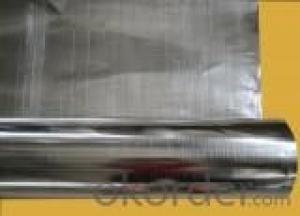When embarking on a construction or renovation project, one of the critical decisions you’ll face is selecting the right insulation material. Among the many options available, XPS insulation boards stand out for their exceptional performance and durability. But with so many factors to consider, how do you choose the perfect match for your project? Let’s dive into the world of XPS insulation boards and explore the key aspects that will guide you in making an informed decision.
The Science Behind XPS Insulation Boards
XPS, which stands for Extruded Polystyrene, is a type of insulation board made from polystyrene beads that are heated and then extruded into a continuous board. This process gives XPS boards their unique closed-cell structure, which contributes to their superior insulation properties. The closed cells trap air, creating an effective barrier against heat transfer and moisture, making them ideal for a wide range of applications.
Why Choose XPS Insulation Boards?
Choosing XPS insulation boards for your project comes with a host of benefits. They offer excellent thermal resistance, meaning they can keep your space warm in winter and cool in summer, reducing your energy bills significantly. Additionally, XPS boards are lightweight, easy to handle, and can be cut to fit any space, making them a favorite among builders and contractors.
Factors to Consider When Choosing XPS Insulation Boards
1. Thermal Conductivity: The lower the thermal conductivity, the better the insulation. Look for XPS boards with a low thermal conductivity value to ensure maximum energy efficiency.
2. Compressive Strength: This refers to the ability of the insulation board to withstand pressure. Higher compressive strength means the board can be used in areas with heavy loads without compromising its insulation properties.
3. Water Vapor Permeance: Moisture can degrade insulation over time. Choose XPS boards with low water vapor permeance to prevent moisture-related issues.
4. Fire Resistance: Safety is paramount. Ensure the XPS boards you select meet the necessary fire safety standards and certifications.
5. Density: The density of the board affects its insulation capability and compressive strength. Higher density boards offer better performance but may also be more expensive.
6. Size and Shape: Consider the specific dimensions and shapes required for your project to ensure a perfect fit and optimal insulation.
7. Environmental Impact: With sustainability becoming increasingly important, look for XPS boards with a lower environmental footprint.
8. Cost: While it’s not the only factor, the cost of the insulation boards should align with your budget without compromising on quality and performance.
Applications of XPS Insulation Boards
XPS insulation boards are versatile and can be used in various applications, including:
– Roofing: They provide excellent insulation for flat roofs, helping to maintain a comfortable indoor temperature.
– Flooring: Underneath floorboards, XPS boards can prevent heat loss and improve acoustic comfort.
– Wall Insulation: Whether for new constructions or retrofits, XPS boards offer excellent thermal insulation for walls.
– Freeze Protection: In areas prone to freezing temperatures, XPS boards can protect pipes and other structures from frost damage.
– Foundation Insulation: They can also be used to insulate foundations, reducing the impact of ground moisture and temperature fluctuations.
Installation Tips for XPS Insulation Boards
Proper installation is crucial to maximize the performance of your XPS insulation boards. Here are some tips to keep in mind:
– Ensure the surface is clean, dry, and free of any debris before installation.
– Use appropriate adhesives and fasteners recommended for XPS boards.
– Seal all joints and edges with compatible tapes to prevent air and moisture infiltration.
– Follow the manufacturer’s guidelines for installation to avoid voids and ensure a uniform insulation layer.
The Future of XPS Insulation Boards
As the construction industry continues to evolve, so does the technology behind insulation materials. XPS insulation boards are expected to incorporate more advanced features, such as improved fire resistance, enhanced environmental sustainability, and better thermal performance. Staying informed about the latest developments will help you choose the best insulation for your future projects.
Wrapping Up
Choosing the right XPS insulation board for your project may seem daunting, but by considering the factors outlined above and keeping an eye on the latest industry trends, you can make a decision that balances performance, cost, and sustainability. Remember, the right insulation can significantly impact the comfort, energy efficiency, and longevity of your building. So, take your time, do your research, and make an informed choice that you’ll be proud of for years to come.

